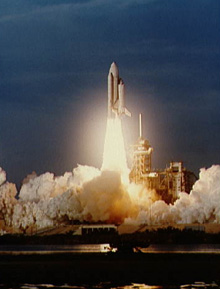A picture of Columbia on its maiden voyage on April 12, 1981.
Click on image for full size
Courtesy of NASA
Columbia (Almost) Takes its 25th Flight!
News story originally written on April 16, 1998
STS-90, the Columbia mission, was scheduled to lift off today. However, due to failure of one of the two signal processors on board Columbia, launch was delayed. It will take about eight hours to replace the processor, so launch is expected to be delayed until tomorrow afternoon. Stay tuned!
The two-week long mission will study the brains and nervous systems of 7 humans and 2,052 animals--including 135 snails, 152 rats, 233 fish, 18 pregnant mice, and 1,524 crickets!
You might also be interested in:
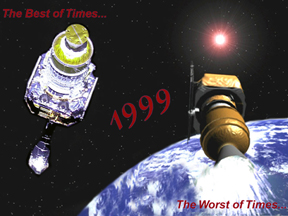
It was another exciting and frustrating year for the space science program. It seemed that every step forward led to one backwards. Either way, NASA led the way to a great century of discovery. Unfortunately,
...more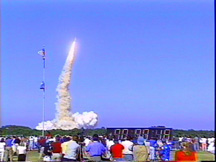
The Space Shuttle Discovery lifted off from Kennedy Space Center at 2:19 p.m. EST, October 29th. The sky was clear and the weather was great as Discovery took 8 1/2 minutes to reach orbit for the Unitied
...more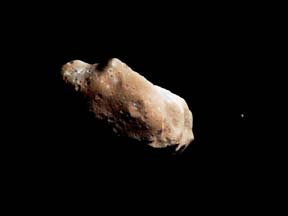
A moon was discovered orbiting the asteroid, Eugenia. This is only the second time in history that a satellite has been seen circling an asteroid. A special mirror allowed scientists to find the moon
...more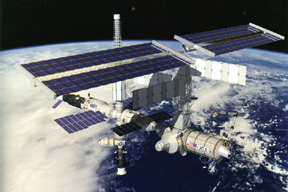
Will Russia ever put the service module for the International Space Station in space? NASA officials are demanding an answer from the Russian government. The necessary service module is currently waiting
...more
During a period of about two days in early May, 1998, the ACE spacecraft was immersed in plasma associated with a coronal mass ejection (CME). The SWICS instrument on ACE, which determines unambiguously
...more
J.S. Maini of the Canadian Forest Service has referred to forests as the "heart and lungs of the world." Forests reduce soil erosion, maintain water quality, contribute to atmospheric humidity and cloud
...more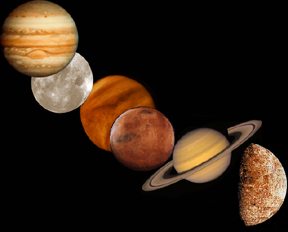
In late April through mid-May 2002, all five naked-eye planets are visible simultaneously in the night sky! This is includes Mercury which is generally very hard to see because of its proximity to the
...more


